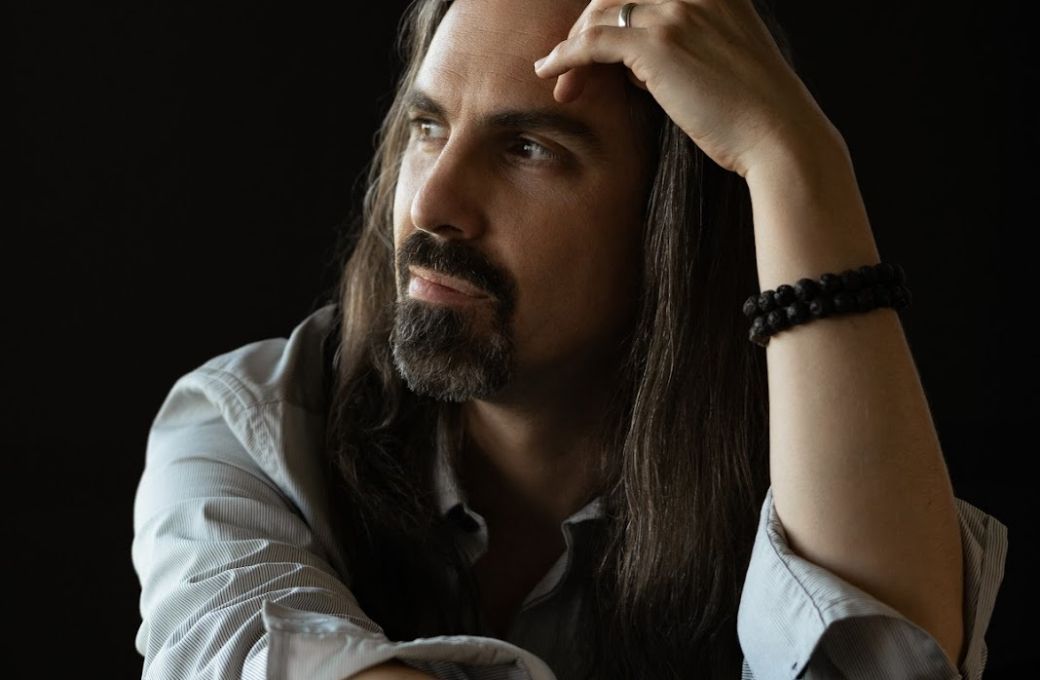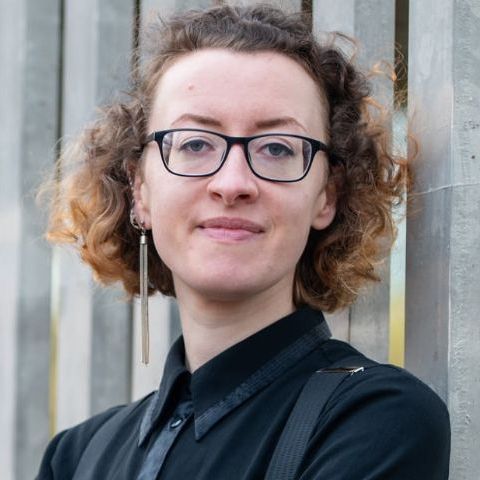Dragon’s Blood feels like a fitting title for a new work by Bear McCreary, a composer celebrated for his prolific career in TV and film – particularly on sci-fi/fantasy projects like Battlestar Galactica, Outlander, and Amazon’s Lord of the Rings series The Rings of Power. This time however, the dragon is wholly metaphorical, evoking a mythic allegory for a topic rooted firmly in reality.

“In this case, the blood of the dragon is representative of the mineral which quite literally powers the modern world,” McCreary tells me. “With every story about dragons, humanity inevitably finds one of two things: either that they cannot contain the immeasurable power of a dragon, or that they can, but at a terrible price.”
Premiering at Carnegie Hall on 26th October, Dragon’s Blood is a song cycle exploring the humanitarian crisis caused by cobalt mining in the Democratic Republic of the Congo. An essential component in the rechargeable batteries used in smart devices like cellphones, cobalt is highly valuable but dangerous to procure, relying on an extraction process that pollutes the local environment and exposes workers to toxic materials. Notorious for its exploitation of child laborers, this mining system is emblematic of global inequality in the tech industry. In Dragon’s Blood, we follow the story of a young boy who goes to work in one such mine in the DRC.
This project emerged indirectly from The Rings of Power, which introduced McCreary to mezzo-soprano Rachel Youngberg Payne and her husband JD Payne, the show’s co-creator. A friendship blossomed, and eventually they decided to embark on an original collaboration, with McCreary describing JD as “a brilliant storyteller,” and Rachel as "a captivating raconteur.” With lyrics penned by JD Payne, Dragon’s Blood will debut during the inaugural tour for Duo Atlantis, a performance partnership between Rachel Payne and pianist Jack Tyndale.
“What I really love about this particular song cycle is that, unlike many others, it takes you through this seamless narrative,” says Rachel. “JD chose a narrative fable style of writing, so one chapter goes directly to the next.”
Duo Atlantis’ Carnegie Hall programme will pair Dragon’s Blood with a selection of classic works representing British and American art song. Harking back to an earlier era of the form, Rachel namechecks Elgar’s Sea Pictures, a song cycle based around five poems about the ocean – a structure that illustrates five interconnected images rather than following a single storyline. By contrast, “What we’re doing with Dragon’s Blood is that it takes you, it grabs you, and it doesn’t let you go until the end.”
When planning her concerts with Duo Atlantis, Payne is constantly thinking about how to engage the audience, how to encourage “as much emotional input from them and participation as possible.” In that sense, the political and artistic goals of Dragon’s Blood go hand in hand. This piece obviously raises awareness about an urgent moral issue, but it does so by bringing the audience on a narrative and spiritual journey.
“I try really hard to be as open as I can whenever I'm singing,” she says. “As far as showing genuine emotion, showing genuine connection. To me, that's where the entertainment comes in, and why you come out to live theater.” Acting as the song cycle’s primary narrator, she’s accompanied by an ensemble including piano, strings, percussion, and a pre-recorded children’s choir from the DRC, singing in the local language of Lingala. (“That part is not my story to tell,” she notes, clarifying that she’ll only be singing in English.) McCreary characterizes this set-up as “a contemporary classical chamber ensemble,” designed to bring modern resonance to a classic art song format.
“Rachel’s mezzo is so expressive and will weave among the stringed instruments beautifully, almost like a trio of voices,” says McCreary. At the same time, “I wanted to juxtapose that with percussive instruments to signify the harsh realities: dangerous and toxic conditions, the physical and emotional toll of choosing labor over education, years of systemic oppression, and the insatiable demands of the modern world.”
“I have always loved combining piano with other similar types of sounds, such as marimba and harp, because they are close enough to feel linked thematically, but each distinct in their own way. And with the addition of a solo cello, it was like adding a second singer to the group, but one who does not need words to convey emotion.”
Starting out as a protégé of the film composer Elmer Bernstein (The Magnificent Seven; The Great Escape), McCreary has a knack for inventive instrumentation, immersing his audience in an evocative sense of time and place: the spacefaring paranoia of Battlestar Galactica, the gloomy Norse fantasy of God of War, the ambitious futurism of Apple TV’s Isaac Asimov series Foundation.
While not as high-profile as Outlander or The Walking Dead, one of McCreary’s most intriguing screen projects was the 18th-century Caribbean pirate drama Black Sails. Here he coupled period-appropriate instruments like the hurdy gurdy and accordion alongside more offbeat choices like an electric bass, reflecting the show’s metacommentary about the relationship between historical fact and fiction.
With The Rings of Power, which premiered in 2022, McCreary faced the daunting task of measuring up to Howard Shore’s iconic score for the Lord of the Rings trilogy. In this megabudget prequel series, he had to offer a fresh view of Middle-Earth, introducing an era thousands of years before the adventures of Frodo Baggins.
Moving beyond the orchestral influences of the original Lord of the Rings score, McCreary looked further afield, employing Aztec death whistles and woodwind instruments carved from animal bones. Echoing Tolkien’s own love of songwriting, some of the show’s music also made its way onscreen, including dwarvish songs that communicated with the bedrock of Middle-Earth’s mountains. One of these dwarvish singers was, in fact, played by Rachel Payne. Elsewhere in the series, McCreary worked with JD Payne on something Rachel describes as “a death metal troll song,” aka “The Last Battle of Damrod.”
“When [JD] gets to work with Bear, he goes into this really happy, childlike state of wonder,” Rachel told us, praising McCreary’s boundless enthusiasm for collaboration. “It feeds your inner artist, I think. I was just really excited to be able to join in on that conversation, and to be in that sort of joyful place of creation.”
“Typically, I am composing for something that is already filmed,” says McCreary. A lot of his work involves “responding to the visual cues and translating that to what it signifies emotionally,” but while Dragon’s Blood is an original piece with no visual component, he doesn’t see much of a difference. For him, JD’s lyrics and Rachel’s voice provided more than enough material to work with.
“The text is incredibly rich in imagery and symbolism, and the emotional response it draws is profound. In many ways with this new work, I’m just telling the story through music exactly as I would in a film medium. And there is a long tradition of narrative, programmatic music in the classical music world. Fundamentally, there are aspects to this that are not dissimilar to a work like Prokofiev’s Peter and the Wolf.”
The main character in Dragon’s Blood gives voice to the children forced to work in cobalt mines, humanizing the hidden costs behind the smart devices we use every day. “He's expressing his hopes and his dreams and his descent, and what he meets along the way,” says Rachel, of the song cycle’s unnamed protagonist. “We get to learn about what is lost and what is gained, and the possibility of hope.”
The Carnegie Hall premiere will be co-presented by Floodlight, an organization that tracks the impact of child exploitation in the DRC. As for Bear McCreary, he’s unsurprisingly very busy, juggling several projects including a new musical theater work titled Particle Fever, about the discovery of the Higgs Boson. And of course soon it will be time to start scoring the third season of The Rings of Power, which began filming this summer.
Duo Atlantis perform Bear McCreary at Carnegie Hall on 26th October.
This article was sponsored by Wildkat PR.


